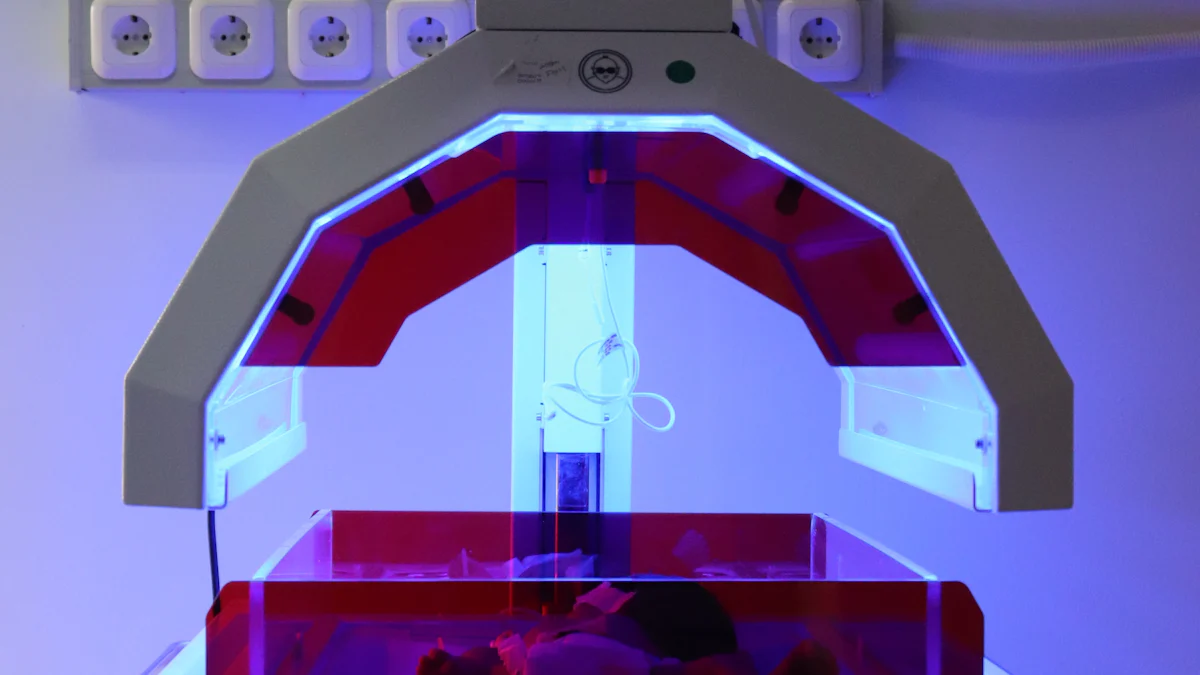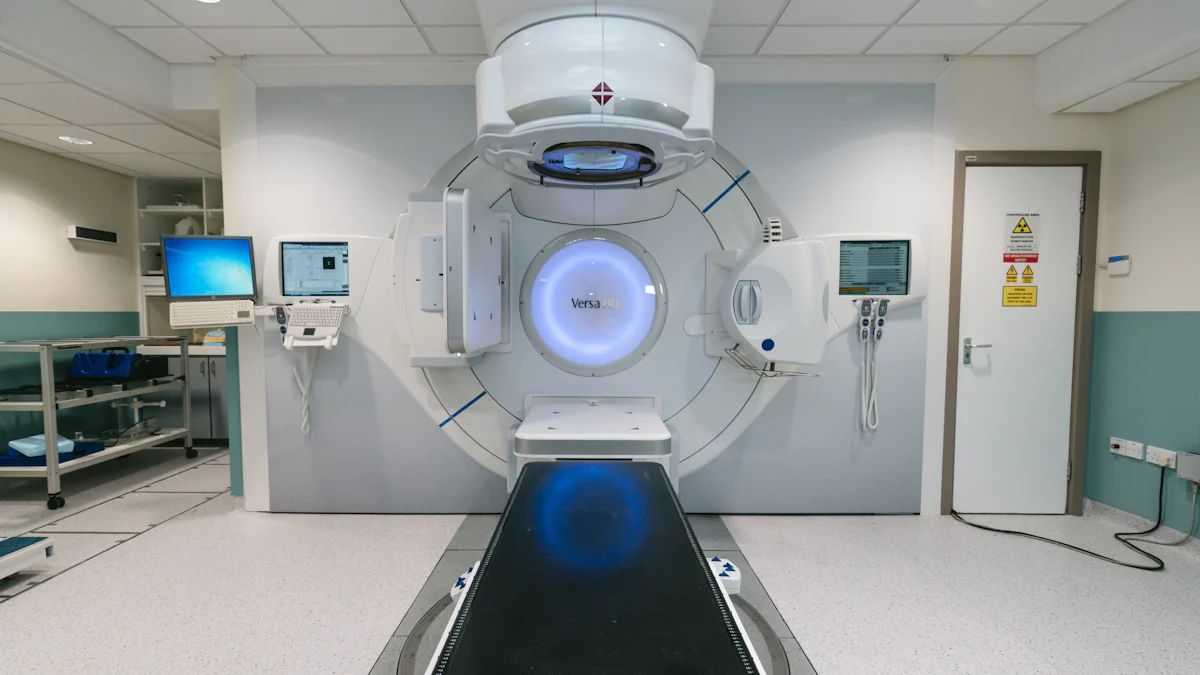Mesothelioma remains a challenging cancer, with a median survival of just 14 months. Clinical trials have revolutionized the treatment of mesothelioma, introducing therapies like Tumor-Treating Fields and molecularly targeted medications. These advancements highlight the importance of innovation. In 2025, emerging therapies aim to improve survival rates and offer hope to patients worldwide.
Key Takeaways
- Mesothelioma care is changing with new treatments like immunotherapy.
- Gene therapy also gives patients more hope for the future.
- Using surgery, chemotherapy, and immunotherapy together can help patients live longer.
- These combined treatments can also make life better for patients.
- Joining clinical trials lets patients try the newest treatments.
- These trials may include experimental therapies that could work well.
Understanding Mesothelioma and Its Challenges
Types of Mesothelioma: Pleural and Peritoneal
Mesothelioma primarily affects two areas of the body: the pleura (lining of the lungs) and the peritoneum (lining of the abdomen). Each type presents unique symptoms and challenges.
- Pleural Mesothelioma Symptoms: You may experience chest pain, shortness of breath, persistent coughing, or even swollen arms and face. Night sweats and unexpected weight loss are also common.
- Peritoneal Mesothelioma Symptoms: This type often causes abdominal pain, nausea, vomiting, and fluid buildup in the abdomen (ascites). You might notice changes in bowel habits, such as constipation or diarrhea.
Prognosis differs significantly. Peritoneal mesothelioma generally offers a better outlook, with an average life expectancy of 53 months compared to 18 months for pleural mesothelioma.
Current Treatment Limitations
Standard treatments for mesothelioma, while essential, have significant drawbacks.
| Treatment Type | Limitations |
|---|---|
| Chemotherapy | Causes severe side effects by damaging healthy cells. Researchers aim to develop targeted drugs. |
| Surgery | Highly invasive and unsuitable for advanced cases. It may not remove all cancerous tissue. |
| Radiation Therapy | Risks damaging healthy tissues and is rarely effective as a standalone treatment. |
These limitations highlight the need for more effective and less invasive options.
Why Innovation is Crucial for the Treatment of Mesothelioma
Traditional therapies often fall short in improving survival rates. Innovative approaches like gene therapy, photodynamic therapy, and immunotherapy offer new hope. Gene therapy targets faulty genes to halt tumor growth. Photodynamic therapy uses light to activate drugs, reducing side effects. Immunotherapy and cancer vaccines aim to train your immune system to fight cancer. These advancements could transform the treatment of mesothelioma, improving both survival and quality of life.
Breakthrough Clinical Trials in 2025

SMARTEST Trial: Goals and Potential Impact
The SMARTEST trial represents a groundbreaking approach to the treatment of mesothelioma. This clinical trial evaluates a multimodal strategy combining radiation, surgery, and immunotherapy. Its objectives include assessing the effectiveness of this sequence, shrinking tumors before surgery, and preventing recurrence afterward.
| Objective | Description |
|---|---|
| Evaluate effectiveness | Assess the multimodal treatment approach for mesothelioma, including radiation, surgery, and immunotherapy. |
| Improve patient outcomes | Aim to shrink tumors before surgery and prevent recurrence after surgery. |
| Innovative treatment protocol | First trial to use the sequence of radiation, surgery, and immunotherapy in this manner. |
This innovative protocol could redefine how you approach mesothelioma treatment, offering hope for improved survival rates.
Intraperitoneal Chemotherapy Post-Surgery for Peritoneal Mesothelioma
Intraperitoneal chemotherapy after surgery has shown promising results for peritoneal mesothelioma. Studies reveal that combining cytoreductive surgery (CRS) with hyperthermic intraperitoneal chemotherapy (HIPEC) can yield excellent outcomes.
| Aspect | Details |
|---|---|
| Background | Study on outcomes after CRS and HIPEC for patients with different subtypes of peritoneal mesothelioma. |
| Results | 85.7% complete cytoreduction; 64.3% had no evidence of disease at follow-up; median recurrence-free survival of 13 months. |
| Conclusion | Locoregional treatment yields good oncological results with reasonable morbidity. |
This approach improves survival rates and reduces recurrence, making it a valuable option for patients like you.
Chemoimmunotherapy for Pleural Mesothelioma
Chemoimmunotherapy combines chemotherapy with immunotherapy, offering a more effective alternative to traditional chemotherapy. Immunotherapy enhances your immune system’s ability to fight cancer, potentially reducing side effects. This combination could lead to better outcomes for pleural mesothelioma patients.
- Chemoimmunotherapy combines chemotherapy with immunotherapy, potentially leading to better outcomes than traditional chemotherapy alone.
- Immunotherapy may result in fewer side effects compared to chemotherapy.
Immunotherapy and Chemotherapy for Peritoneal Mesothelioma
Combining immunotherapy and chemotherapy has emerged as a promising strategy for peritoneal mesothelioma. Immunotherapy minimizes side effects, while chemotherapy effectively controls tumor growth. Together, they provide optimal results.
| Treatment Group | Treatment Description |
|---|---|
| Group A | Atezolizumab (immunotherapy) + Carboplatin + Pemetrexed + Bevacizumab |
| Group B | Carboplatin + Pemetrexed + Bevacizumab (without immunotherapy) |
This combination offers a balanced approach, improving your chances of better outcomes while maintaining quality of life.
Emerging Trends in the Treatment of Mesothelioma

Advancements in Immunotherapy
Immunotherapy continues to revolutionize the treatment of mesothelioma by harnessing your immune system to fight cancer. Recent advancements include preventive vaccines targeting the OX40 receptor, which have shown promise in animal studies. Therapeutic vaccines like CRS-207 and galinpepimut-S (WT1) are undergoing trials and have demonstrated improved survival rates. Cell therapies, such as CAR T-cell therapy, modify your T cells to attack cancer cells directly. Monoclonal antibodies, including tremelimumab and amatuximab, target specific proteins to inhibit tumor growth. Key drugs like Opdivo, Yervoy, and Keytruda have also shown success, particularly for recurrent cases.
| Advancement Type | Details |
|---|---|
| Preventive Vaccine | Targets the OX40 receptor, showing promising results in mice. |
| Therapeutic Vaccines | CRS-207 and galinpepimut-S (WT1) in trials, both showing improved survival. |
| Cell Therapies | CAR T-cell therapy modifies T cells to target cancer. |
| Monoclonal Antibodies | Tremelimumab targets CTLA-4; amatuximab shows promising results in trials. |
| Key Drugs | Opdivo, Yervoy, and Keytruda have shown promising results, especially for recurrent cancer. |
Personalized Medicine and Targeted Therapies
Personalized medicine tailors treatment to the unique biology of your tumor. Gene therapy, for example, aims to correct faulty genes that drive cancer. Techniques like gene transfer introduce healthy genes to cancer cells, potentially halting tumor growth. Replacing the BAP1 gene has shown promise in inhibiting mesothelioma progression. Precision medicine also focuses on specific mutations within your tumor, improving treatment efficacy. However, challenges remain, as many tumor suppressor genes are not easily targeted. Researchers are exploring umbrella trials to address these obstacles.
Multimodal Approaches to Treatment
Multimodal approaches combine therapies to improve outcomes. Chemotherapy and surgery together can extend survival to nearly 26 months. Adding radiation therapy creates a trimodal approach, with median survival times reaching 39.4 months. The SMART protocol, which integrates radiation, surgery, and chemotherapy, has pushed survival rates for pleural mesothelioma beyond five years. These combinations offer a comprehensive strategy to combat the disease.
- Chemotherapy: Targets fast-growing cancer cells but may cause side effects.
- Surgery: Effective for early-stage mesothelioma but unsuitable for advanced cases.
- Radiation Therapy: Kills cancer cells with high-energy beams, now more targeted than ever.
- Immunotherapy: Enhances tolerability and survival when added to multimodal treatments.
Experimental Therapies: Gene Therapy, Cancer Vaccines, and More
Experimental therapies offer exciting possibilities for the treatment of mesothelioma. Gene therapy introduces new genes to cancer cells, making them more vulnerable to destruction. Some methods use modified viruses to deliver these genes directly to the tumor. Vaccine therapy trains your immune system to recognize and attack cancer cells. Preventive vaccines targeting the OX40 receptor and therapeutic vaccines like CRS-207 are showing promise in trials. These innovations could redefine how you approach mesothelioma treatment.
- Gene Therapy: Adds healthy genes or introduces “suicide genes” to increase chemotherapy sensitivity.
- Vaccine Therapy: Stimulates your immune system to target cancer cells, with ongoing trials showing improved survival.
Emerging therapies and clinical trials play a vital role in improving mesothelioma outcomes.
- Clinical trials test innovative treatments like tumor vaccines, antibody therapies, and T cell–based approaches.
- They aim to enhance survival rates and quality of life by evaluating safety and effectiveness.
These advancements offer hope. Explore clinical trials and consult your healthcare provider to access cutting-edge options.
FAQ
What is the most promising therapy for mesothelioma in 2025?
Immunotherapy shows the most promise. It trains your immune system to fight cancer effectively, with fewer side effects compared to traditional treatments.
Tip: Ask your doctor about clinical trials involving immunotherapy.
Can you combine multiple therapies for better results?
Yes, multimodal approaches combine surgery, chemotherapy, and immunotherapy. This strategy improves survival rates and enhances your quality of life.
- Example: The SMART protocol integrates radiation, surgery, and chemotherapy for pleural mesothelioma.
How can you access experimental treatments?
You can join clinical trials. These trials test cutting-edge therapies like gene therapy and cancer vaccines, offering you access to innovative treatments.
Note: Consult your healthcare provider to find suitable trials near you.
